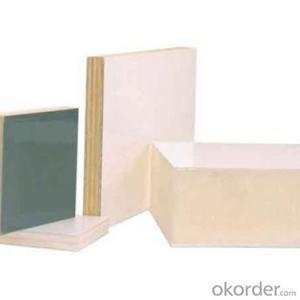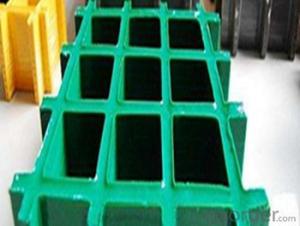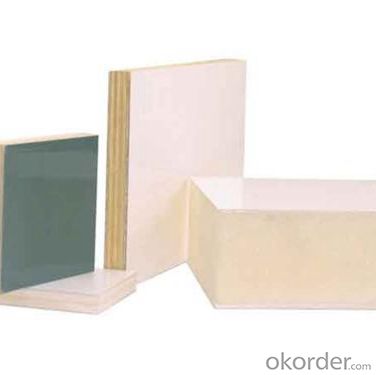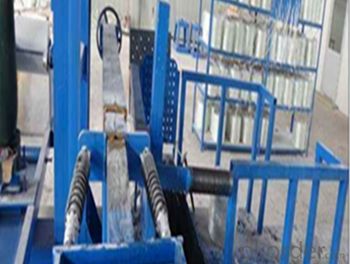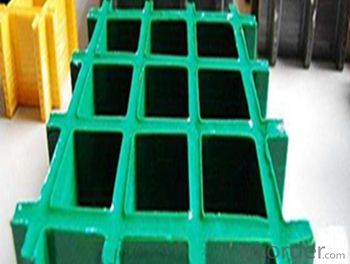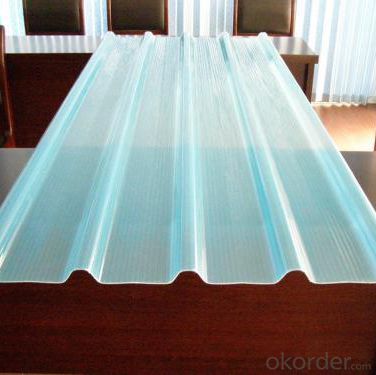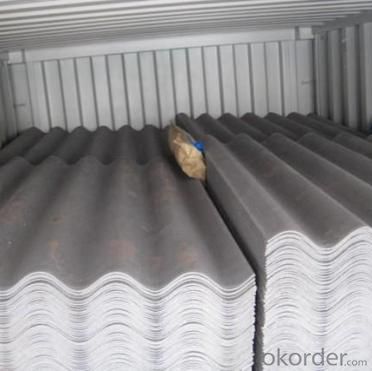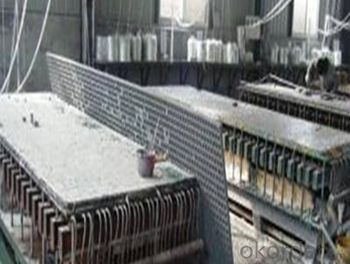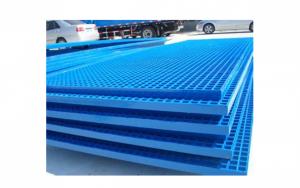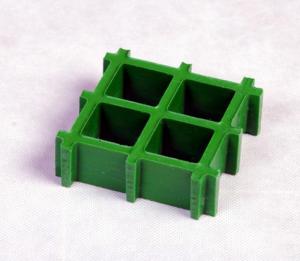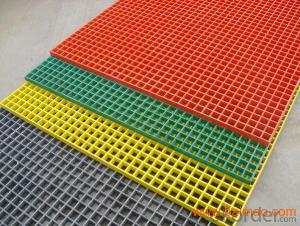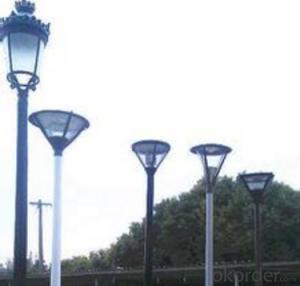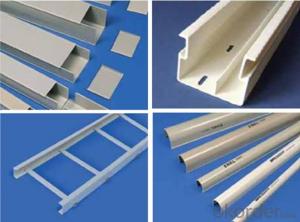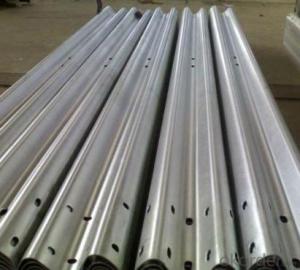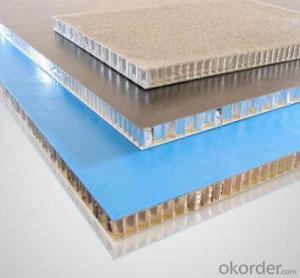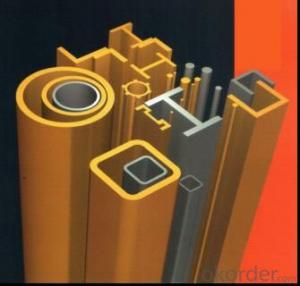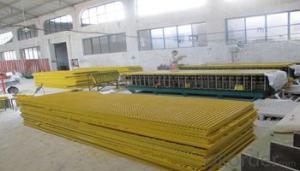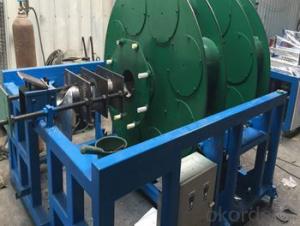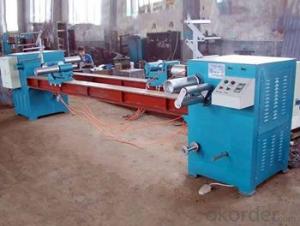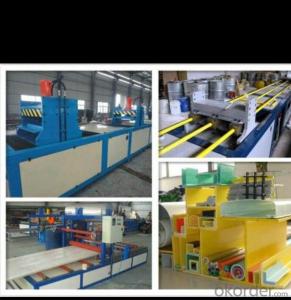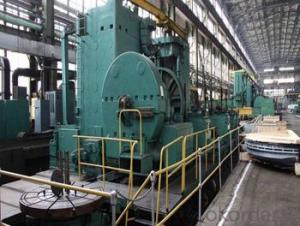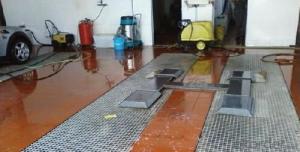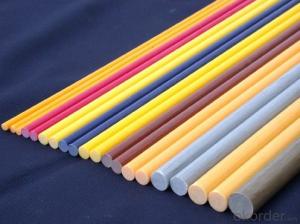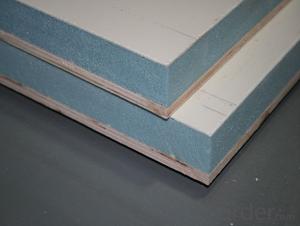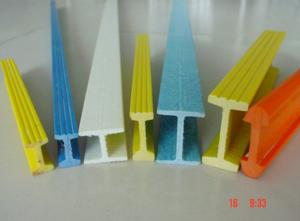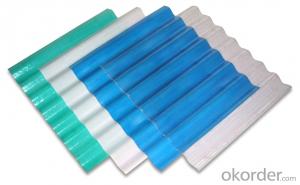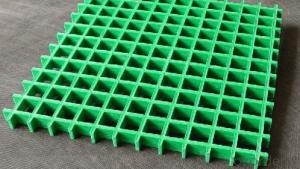FRP Pultrusion Profiles - Lightweight, High Strength FRP Pultruded Grating with Good Quality
- Loading Port:
- Tianjin
- Payment Terms:
- TT OR LC
- Min Order Qty:
- 20000 m.t.
- Supply Capability:
- 500000 m.t./month
OKorder Service Pledge
OKorder Financial Service
You Might Also Like
Specification
PRODUCT DESCRIPTION
Pultruded grating is made by a particular assembly process, which using “I” shape as its main load-bearing and special rod to go through the bearing bar. Pultruded grating include the standard grating and the custom grating, the custom grating can be designed to meet customer’s requirement or special using condition by changing the shape, size and space of the bearing bars, the surface can be covered with lozenge panel, grit panel, or added the anti-slippery sand directly.
FRP pultruded grating has the most characteristics of molded grating, but it has its distinct advantages, it has very high fiberglass content in the loading direction, so it has very high load capability, it has more superiority when used at wide span, so that the basic support will be decreased and the project cost will be reduced accordingly.
SPECIFICATION
The standard space between two crossbars is 6 inch or 12 inch.
Thickness (mm) | Bar width (mm) | Open space (mm) | Open rate (%) | Approx weight (kg/m |
25.4 | 15.2 | 22.8 | 60 | 13.2 |
25.4 | 15.2 | 15.2 | 50 | 15.9 |
25.4 | 15.2 | 10.1 | 40 | 18.5 |
25.4 | 40 | 10.8 | 21 | 14.5 |
38.1 | 15.2 | 22.8 | 60 | 15.8 |
38.1 | 15.2 | 15.2 | 50 | 19.1 |
38.1 | 15.2 | 10.1 | 40 | 22.4 |
50.8 | 25.4 | 25.4 | 50 | 16.6 |
50.8 | 25.4 | 12.7 | 33 | 21.1 |
CHOICE FOR PULTRUDED GRATING
Resin: GP resin, ISO resin, VE resin, Phenol resin
Color choice: Yellow, gray, green, custom color
Surface choice: Groove surface, grit surface, lozenge cover surface
FEATURES
a. Anti-corrosion and anti-rust
b. Light weight and high strength
c. Anti-flammable
d. Anti- fatigue
e. Safe and anti-slippery
f. Anti-ageing
g. Easy of maintenance
h. Excellent electromagnetism property
i. Good economic benefit
FIELDS SERVED
Sewage treatment,
water supply and drainage,
chemical industry,
oil industry,
power engineering,
pulp and paper,
construction engineering,
spinning, marine engineering.
APPLICATION
Operation terrace,
stair walkway,
ground floor,
trench cover,
sidewalk,
foot bridge,
equipment safety fence,
scaffold.
COMPANT DESCRIPTION
CNBM,China National Building Materials Group is a state-owned enterprise in charge of administrative affairs in china building materials industry. Established in 1984, CNBM is a large group corporation of building materials with total assets of 25 billion RMB and a total staff of 30,000.CNBM now owns 200 subordinating firms of solely owned and joint-venture companies.
CNBM International Corporation is one subsidiary of CNBM, we focus on offering good-quality products,professional service and complete solution to our customers. Strong delivery capacity, advanced technology& management, strong financing capability and excellent after-sale service are our advantages in sharing international market.
FAQ
Q1.What's your sample policy?
A:We can supply the sample if we have ready parts in stock, but the customers have to pay the courier cost.
Q2.Can you produce according to the samples?
A: Yes, we can produce or modify the products according to your request.
Q3.How do you deliver the goods to my country?
A:We can provide international express, such as DHL, EMS, UPS, FedEx, etc. We select air freight and sea freight upon your requests. Quotations if without mentioning the shipping costs are shipping fee excluded.
Q4.How much does it cost to ship to my country?
A:When you goanna to place an order, please contact us, because different country has different freight.
Q5.How to get the catalogue?
A:please contact us and tell us what you are looking for.
We will try our best to meet customers' demands. Welcome you come here to visit us. We sincerely welcome partners around the world to establish business cooperation with us on the basis of mutual trust, benefit and development.
PICTURES
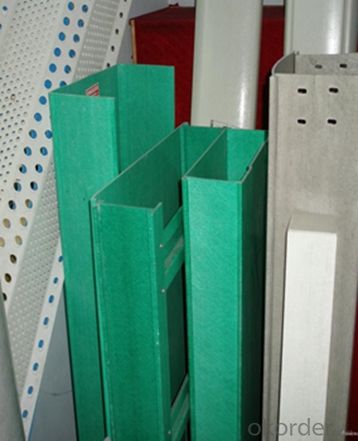
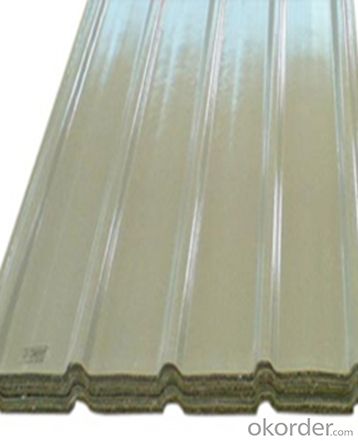
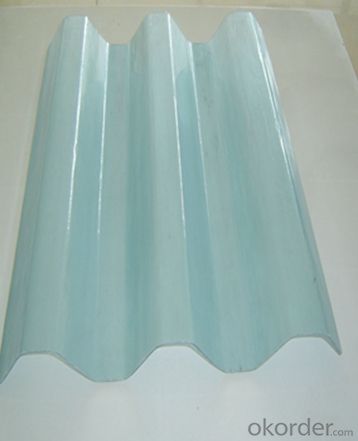
- Q: Can FRP pultrusion profiles be used in aerospace applications?
- FRP pultrusion profiles are applicable in aerospace applications. They possess numerous advantages that render them suitable for use in this field. Firstly, their exceptional strength-to-weight ratios are crucial in the aerospace industry as they contribute to weight reduction and fuel efficiency improvement. Secondly, FRP materials display high resistance to corrosion, making them suitable for enduring exposure to harsh environments like high altitudes and extreme temperatures. Additionally, FRP pultrusion profiles provide design flexibility, allowing for the production of intricate shapes and geometries. This flexibility enables aerospace engineers to customize the profiles according to specific requirements and optimize their performance. Moreover, FRP materials exhibit low thermal conductivity, which aids in insulation applications and minimizes heat transfer. Lastly, FRP pultrusion profiles have demonstrated commendable fatigue resistance, a crucial factor for aerospace applications subjected to cyclic loading. Overall, these properties establish FRP pultrusion profiles as a viable option for various aerospace components, including structural members, interior parts, and electrical enclosures.
- Q: Can FRP pultrusion profiles be used in the construction of water treatment plants?
- Yes, FRP (Fiber Reinforced Polymer) pultrusion profiles can be used in the construction of water treatment plants. FRP pultrusion profiles have several advantages that make them suitable for this application. Firstly, FRP pultrusion profiles are corrosion-resistant. Water treatment plants are exposed to various corrosive elements, such as chemicals and moisture. Traditional materials like steel and concrete can deteriorate over time due to corrosion, leading to maintenance issues and potential structural failures. However, FRP pultrusion profiles are highly resistant to corrosion, ensuring long-term durability and reducing maintenance costs. Secondly, FRP pultrusion profiles are lightweight and have high strength-to-weight ratios. This makes them easy to handle and transport while maintaining structural integrity. Water treatment plants often require structural elements that can withstand heavy loads and support equipment. FRP pultrusion profiles provide the necessary strength without adding excessive weight, making them an ideal choice for such applications. Additionally, FRP pultrusion profiles are non-conductive and have excellent electrical insulation properties. This can be crucial in water treatment plants, where electrical equipment and wiring are present. The non-conductive nature of FRP helps prevent electrical hazards and ensures safe operation. Furthermore, FRP pultrusion profiles can be customized to meet specific design requirements. They can be manufactured in various shapes and sizes, allowing for flexibility in design and construction. This adaptability makes FRP pultrusion profiles suitable for a wide range of applications within water treatment plants, including structural supports, walkways, handrails, and equipment enclosures. In summary, FRP pultrusion profiles are an excellent choice for the construction of water treatment plants due to their corrosion resistance, lightweight yet strong nature, electrical insulation properties, and customization options. They offer long-lasting durability, reduced maintenance costs, and enhanced safety, making them a reliable and efficient solution for this critical infrastructure.
- Q: What are the best manufacturers of glass fiber reinforced plastic pultruded profiles in China?
- In addition to the thickness of radome products, there should be other requirements.
- Q: Can FRP pultrusion profiles be used in telecommunications towers?
- Yes, FRP (Fiber Reinforced Polymer) pultrusion profiles can be used in telecommunications towers. FRP materials offer several advantages for such applications, including high strength-to-weight ratio, corrosion resistance, and electrical non-conductivity. These properties make FRP pultrusion profiles suitable for use in telecommunications towers, providing structural support while offering durability and longevity.
- Q: What are the circumstances in which the pultrusion should be performed?
- The roving yarn assembly in yarn frame, yarn unwinding through a series of guide roller and cluster grid plate, roller set, enter the resin impregnated resin impregnated yarn groove. Then through the pre forming die, the die is required according to the shape of products and configuration in the guiding device. The mold after discharge excess resin and bubbles into the cold. Cold mold cooling by cooling water, so that the resin viscosity, reduce the loss, and finally into the mold, the fiber reinforced material and resin molding in mold curing, and then the traction device is pulled, cut into required length of products by cutting device.
- Q: Can FRP pultrusion profiles be used in the production of electrical busbars?
- Yes, FRP pultrusion profiles can be used in the production of electrical busbars. FRP (Fiber Reinforced Plastic) pultrusion profiles offer several advantages such as high strength, excellent electrical insulation properties, and resistance to corrosion, making them suitable for use in electrical applications like busbars. They provide a lightweight and durable alternative to traditional materials like copper or aluminum, and their non-conductive nature ensures safety in electrical systems.
- Q: Can FRP pultrusion profiles be used in the aerospace and aviation industry?
- Yes, FRP pultrusion profiles can be used in the aerospace and aviation industry. These profiles offer several advantages such as high strength-to-weight ratio, excellent corrosion resistance, and electrical insulation properties. They can be used in various applications including aircraft interiors, structural components, and electrical systems. Additionally, FRP pultrusion profiles can be customized to meet specific design requirements, making them suitable for use in the aerospace and aviation industry.
- Q: How do FRP pultrusion profiles perform in extreme cold temperatures?
- FRP pultrusion profiles generally perform very well in extreme cold temperatures. This is due to the inherent properties of the materials used in their construction. FRP (fiber-reinforced polymer) composites are known for their excellent thermal insulation properties, which help to maintain the structural integrity of the profiles even in extremely low temperatures. One key advantage of FRP pultrusion profiles in cold environments is their resistance to freezing and thawing cycles. Unlike some other materials, FRP does not absorb water, which means it does not expand or contract with temperature changes. This prevents cracking or damage that can occur when moisture freezes and expands within traditional materials such as metal or concrete. Furthermore, FRP pultrusion profiles have a low coefficient of thermal expansion, meaning they do not significantly expand or contract with temperature fluctuations. This stability allows them to maintain their shape and structural integrity in extreme cold, reducing the risk of deformation or failure. In addition to their thermal properties, FRP pultrusion profiles also exhibit high strength and durability, making them suitable for use in various applications such as construction, infrastructure, and transportation, even in harsh cold environments. They are resistant to corrosion, chemicals, and UV radiation, further enhancing their performance and longevity in extreme conditions. Overall, FRP pultrusion profiles are an excellent choice for applications requiring reliable performance in extreme cold temperatures. Their thermal insulation properties, resistance to freezing and thawing cycles, low coefficient of thermal expansion, and overall strength and durability make them well-suited for various industries and environments, ensuring their continued performance even in the harshest cold conditions.
- Q: Can FRP pultrusion profiles be used in the construction of industrial flooring?
- Yes, FRP pultrusion profiles can be used in the construction of industrial flooring. These profiles are lightweight, durable, and corrosion-resistant, making them an ideal choice for industrial applications. They offer high strength-to-weight ratio, excellent load-bearing capacity, and resistance to chemicals, moisture, and extreme temperatures. Additionally, FRP pultrusions can be customized to meet specific design requirements, making them versatile for various industrial flooring applications.
- Q: Can FRP pultrusion profiles be used in the construction of shipping containers?
- Indeed, the utilization of FRP pultrusion profiles in the construction of shipping containers is possible. These profiles offer numerous advantages that render them suitable for this purpose. To begin with, FRP pultrusion profiles possess exceptional strength and durability. They exhibit a high strength-to-weight ratio, enabling the creation of lightweight shipping containers capable of withstanding heavy loads and harsh environmental conditions. This characteristic proves particularly advantageous in the shipping industry, where containers endure rough handling and extreme weather while in transit. Furthermore, FRP pultrusion profiles display resistance to corrosion, a significant concern in the shipping industry due to exposure to saltwater and other corrosive substances. Unlike traditional materials like steel, FRP does not rust or corrode, thereby ensuring a longer lifespan for the shipping containers. Moreover, FRP pultrusion profiles exhibit excellent thermal insulation properties. This characteristic facilitates the maintenance of a consistent temperature within the shipping containers, which is crucial for transporting temperature-sensitive goods such as food, pharmaceuticals, and chemicals. Additionally, FRP pultrusion profiles can be easily customized and fabricated into various shapes and sizes, allowing for design flexibility in the construction of shipping containers. They can be molded to specific dimensions and incorporate features such as reinforcements, fastening points, and integrated insulation. Notably, FRP pultrusion profiles are also non-conductive and possess low thermal conductivity. These attributes make them an ideal choice for shipping containers that transport sensitive electronic equipment or hazardous materials, as they reduce the risk of electrical and thermal accidents. In conclusion, FRP pultrusion profiles can indeed be employed in the construction of shipping containers. Their strength, durability, corrosion resistance, thermal insulation properties, design flexibility, and non-conductive nature make them a reliable and practical choice for this application.
Send your message to us
FRP Pultrusion Profiles - Lightweight, High Strength FRP Pultruded Grating with Good Quality
- Loading Port:
- Tianjin
- Payment Terms:
- TT OR LC
- Min Order Qty:
- 20000 m.t.
- Supply Capability:
- 500000 m.t./month
OKorder Service Pledge
OKorder Financial Service
Similar products
Hot products
Hot Searches
Related keywords
